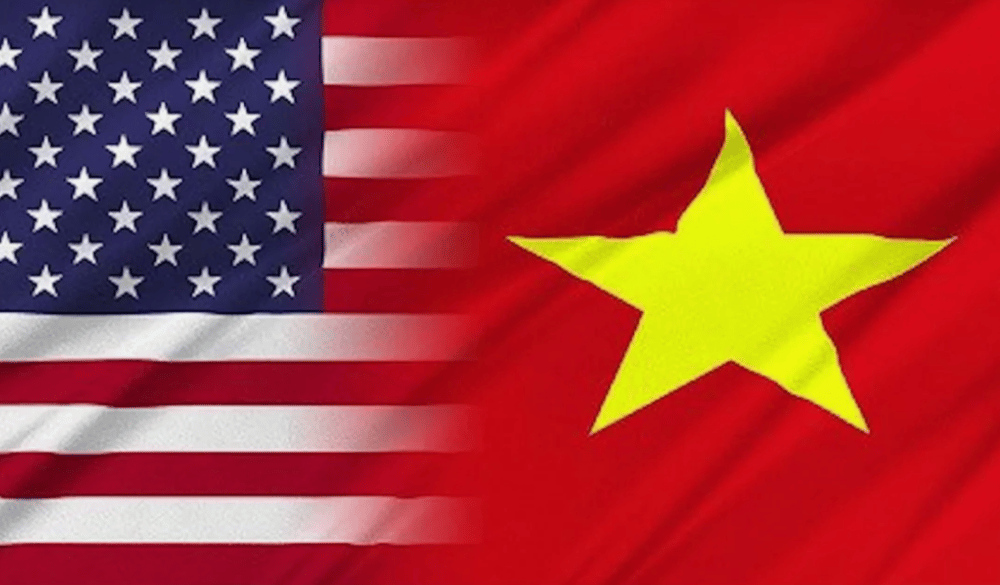US-Vietnam Trade Talks to Resume Amid 46% Export Tariff Deadline and Strategic Economic Stakes
The United States and Vietnam are set to hold a new round of trade negotiations by the end of next week, as announced by Vietnam’s Ministry of Industry and Trade on Thursday. This development follows Hanoi’s submission of a formal response document addressing trade inquiries from the US. The upcoming third round of talks aims to reach a compromise before the impending expiration of the current 46% “reciprocal” tariffs imposed on Vietnamese exports to the US, scheduled for early July. The urgency underscores the increasing economic and geopolitical significance of US-Vietnam trade relations amid global market volatility.
Implications of Tariff Negotiations on US-Vietnam Trade and Export Dynamics
The high 46% tariffs, introduced as reciprocal measures, have placed considerable strain on Vietnam’s export sectors, especially in textiles, footwear, and electronics, which are significant contributors to the Vietnamese economy and critical components of the US supply chain. The tariffs originated as a response to trade imbalances and allegations of unfair trade practices, but their scale has led to intensified pressure for resolution.
Vietnam’s Ministry of Industry and Trade emphasized ongoing efforts to expedite technical discussions in preparation for the upcoming negotiation round. The talks between Vietnamese Trade Minister Nguyen Hong Dien and US Trade Representative Jamison Greer in Paris on Wednesday focused on accelerating these technical dialogues. Both parties are keen to reach a mutually acceptable agreement that balances tariff relief with the protection of domestic industries.
The expiration deadline in early July acts as a catalyst for accelerating discussions, highlighting the potential economic disruptions if tariffs remain unchanged. Failure to resolve the issue could result in sustained higher costs for Vietnamese exporters and reduced competitiveness in the US market, potentially disrupting supply chains and affecting consumer prices.

Quick Facts: US-Vietnam Trade Negotiations and Tariff Context
The third round of US-Vietnam trade talks expected by late May or early June 2025
Current 46% reciprocal tariffs on Vietnamese exports to the US set to expire in early July
Vietnam submitted an official response to US trade inquiries recently
Technical negotiations accelerated following a meeting in Paris between Trade Minister Nguyen Hong Dien and US Trade Representative Jamison Greer
Key affected Vietnamese sectors include textiles, footwear, and electronics
Market Reactions and Expert Commentary on Trade Tensions
Following the announcement, market analysts noted heightened volatility in sectors reliant on Vietnamese exports. Importers and retailers in the US are closely monitoring the negotiations due to the potential impact on pricing and supply continuity. The tariffs have led some multinational companies to reconsider sourcing strategies, with potential shifts towards alternative markets or increased production within the US.
Experts emphasize that while tariffs are a traditional trade policy tool, their long-term effects often ripple through global supply chains, increasing costs and inefficiencies. The US and Vietnam’s ability to negotiate a pragmatic compromise could serve as a benchmark for resolving similar trade tensions elsewhere.
Vietnam’s growing role in global manufacturing and export highlights the strategic importance of these talks, as US businesses increasingly rely on Vietnamese inputs. Additionally, these negotiations occur against a backdrop of broader geopolitical realignments in Southeast Asia, where economic partnerships are intertwined with security and diplomatic considerations.

Key Takeaways
The third round of US-Vietnam trade talks is crucial to avoid prolonged tariffs affecting Vietnamese exports.
The 46% reciprocal tariffs have significantly pressured Vietnamese export sectors like textiles and electronics.
Technical negotiations accelerated after high-level discussions in Paris, reflecting mutual urgency.
Market volatility reflects concerns over supply chain disruptions and cost increases.
Successful negotiations could reinforce economic ties and set precedents for future trade conflict resolutions.
Significance of the US-Vietnam Trade Talks and Tariff Resolution
The upcoming US-Vietnam trade negotiations represent a pivotal moment for bilateral trade relations, with significant implications for exporters, importers, and global supply chains. Resolving the contentious 46% tariffs before their expiration in July could stabilize market conditions and promote sustained economic growth on both sides.
These talks illustrate the complex interplay between trade policy, economic strategy, and geopolitical considerations, underscoring the need for adaptive and cooperative approaches in managing international commerce. As Vietnam cements its role as a manufacturing hub, successful tariff negotiations with the US will be essential to maintaining its export momentum and economic resilience.















Comments
This new round of talks reminds us how vital diplomacy is to shaping resilient economic futures amid global uncertainties.